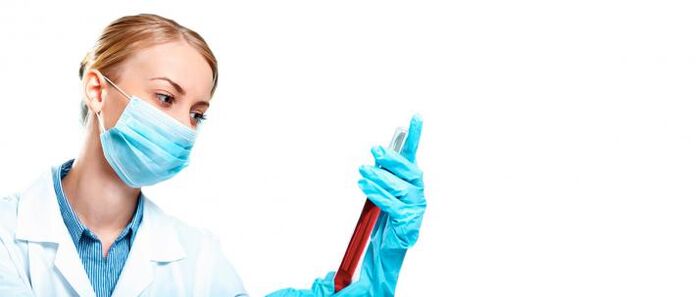
More than 250 species of various parasites can live in the human body! According to statistics collected by the WHO, about 4. 5 billion people are infected with the parasite, and this figure does not only include the population of "Third World" countries, it has been proven that more than 30% of all European populations are carriers. A person can live in peace and not even suspect that the intruder has settled in his body. So maybe they’re safe because it’s not inconvenient? But taking into account this opinion, it is necessary to identify the parasite, determine its type and find out how parasitosis is treated and negligence can turn into.
Why can parasites start?
How do parasites appear in the human body, however, they cannot come from the air? In fact, the mechanism of infection is simple - frequently washed hands become the cause of infection, from which the larvae enter the gastrointestinal tract (gastrointestinal tract), where they successfully transform into adults and remain in the human body, safely devouring all the most valuable in it. : vitamins and minerals. . .

In some cases, the parasite reaches a person through sexual contact. Therefore, you can be infected with trichomoniasis, cream worms and ploshchitsy (popular - genital lice). There is a high risk of infection from pets and personal hygiene items (wipes, towels).
It is easy to see that the cause of parasites in the body is quite prose. In most cases, children are infected, unless the infection is of course.
We already know the reason, now we will know the signs of parasites in the body that will tell you that you need to start treatment.
How to determine the presence of parasites in the body?
If the vital activity of the "neighbor" is not symptomatic, then some signs of parasites in the human body can still be detected without special diagnostics. These signs include:
- Bloated stomach;
- Kembung;
- Constipation;
- The general disadvantage, because the body does not receive essential substances, gives it parasites;
- White discharge in women indicates trichomoniasis;
- Developmental delay in children;
- The appearance of allergic rashes and dermatitis on the skin;
- Mental exhaustion with prolonged infection.

Although these signs are only indirect indications of the presence of parasites, they can be a strong reason for a complete diagnosis.
Clinical diagnostics
For many years, the diagnosis of parasites in the human body was limited to the analysis of feces for the presence of roundworm eggs. This approach makes it possible to determine the infection only in the final stages of the disease. Currently, diagnostics have improved significantly. To identify parasites in the body, this kind of research is used today:
- ELISA immunosorbent or related enzyme tests. Allows you to detect the presence of appropriate antibodies;
- Blood tests;
- ART - vegetative resonance testing;
- Bioresonance therapy.
Private clinics offer more new methods, tools for the diagnosis of parasitosis, so it is very important to consult an immunologist for advice. Experts will tell you how to check for body parasites in the most informative way.
It is very important to identify the presence of parasites in a timely manner, the longer they stay in the body can adversely affect human life. There are frequent cases when the infection is fatal.

Are all parasites harmful to humans?
Recently, scientists began to study the relationship of autoimmune disorders with the vital activity of parasitic worms. The conclusions reached by US researchers were shocking!
It turns out that parasites that live in the human body can also be beneficial by stimulating the immune system.
For centuries, people have coexisted with parasites, forming a certain symbiosis. Now that the number of infected people has dropped significantly, people are more susceptible to autoimmune diseases.
Beneficial parasites in the human body activate their own immune regulation, as a result of which the host gets double protection. Therefore, intestinal worms are able to suppress the inflammatory process in the body. Research on this relationship continues to this day. It is impossible to predict the other discoveries they will bring.
Types of parasites
All parasites in the human body are conditionally divided into subgroups, according to the nature of their influence on the body. Types of parasites in the human body, as well as symptoms and treatment of parasites in the human body:
| The name of the parasite in humans | Harmful effects | Symptoms | How to kill parasites in the body | Mechanisms of infection |
| Helminths | They have a depressing effect on the intestinal microflora. Disrupts metabolism and prevents nutrient absorption. | Skin rash, enlarged lymph nodes, liver and spleen, jaundice, fever. | For treatment, a number of special anthelmintic drugs are used. | Through food, common hygiene items, as a result of close contact with animals. |
| Round worms | They cause the development of a number of diseases of the intestines, gallbladder and lungs. | Low-grade fever, diarrhea (in the early stages), tuberculosis, acute allergic reactions. | Parasites die on their own after a year, because they cannot reproduce in the body. Anthelmintic drugs are used in treatment. | As a result of poor hygiene. |
| Fungus | They can be triggers of oncological diseases. | White plaques on the mucous membranes, redness and peeling of the skin, itching on the affected area. | Treatment depends on the location of the fungus. Fungal remedies come in the form of ointments, medicated shampoos, and special treatment solutions. | Shipped via regular goods. Healthy areas from the infected are affected. |
| Cream worms | Has an adverse effect on the intestines. | Itching in the anal area, allergies, nausea and vomiting. | It is treated with anthelmintic drugs. | Failure to adhere to personal hygiene, along with food. |
| Giardia | Affect the heart of the host. | Indigestion, periodic fever, diarrhea. | Enzyme preparations, choleretics, antibiotics. Antihistamine treatment. | Through household items, along with food. |
| Chlamydia | They contribute to the development of diabetes and infertility, destroy the liver, and affect the pancreas. | In women, it is almost asymptomatic - urination may be more frequent. In men, it manifests itself as urethritis, vaginal discharge and pain when urinating. | Antibiotics Treatment of sexual partners is mandatory. | Unprotected sexual intercourse. Rarely - through personal hygiene items. |
| Trichomonas | They affect the oral cavity, causing disturbances in the function of the genitourinary and intestinal systems. The host vascular system also suffers. May provoke oncology. | Cutting while urinating, removing foam from the external genitalia of men and women. | Antibiotics, immunomodulators, enzymes. Local external treatment: women with vaginal cleansing suppositories, men with antiseptic solutions. | Sexually transmitted infections. |
| Toxoplasma | Affects the mucous membranes, causing dysfunction of the genitourinary and intestinal systems. Long -term "cohabitation" is fraught with mental retardation. | It is not symptomatic or masquerades as a variety of diseases. Expose with a full examination. | Etiotropic treatment, immunomodulators, antihistamines, toxoplasmotherapy. | Through meat and vegetables. When a pregnant woman is infected, the baby is infected in the womb. Infections from domestic cats. |
| Fascioliasis | Causes hepatitis and causes allergic reactions. | Allergic symptoms occur against the background of general malaise. The chronic form is characterized by pain in the liver. | Antihistamines, calcium chloride. If complications develop, hepatitis is treated. | Through meat, unwashed ingredients and untreated water. |
This list of parasites in the human body will help you know when to seek medical treatment. Infectious disease specialists will prescribe treatment depending on the type of parasite in the human body. You can not postpone an appointment with a doctor and wait for complications - the disease is easier to cure in the early stages.
























